Staff Reporter
The Pyongyang Broadcasting Station reported on Tuesday that North Korea agreed to hold the second six-party talks on Feb. 25 in China to resolve the standoff over its nuclear programs.
``Regarding the event of the second six-way talks, (North Korea) and the United States, the two primary nations in the talks, and China agreed to start talks Feb. 25,’ the state-run news agency reported on Tuesday. The other parties, including China, Russia and Japan have also given their consent, according to the North’s official Korean Central News Agency, which was quoted in the news report.
Beijing, which hosted the first talks from Aug. 27 to 29 last year, will remain the venue for talks after nearly half a year of standstill.
Deputy Foreign Minister Lee Soo-hyuck yesterday confirmed the report.
``The government conducted close consultations with the relevant countries over the second six-party talks,’’ Lee said
He added the Feb. 25 date was South Korea’s idea, which was relayed to the Chinese side some time ago.
Pyongyang’s acceptance of the dates can be seen as an answer to a counterproposal drawn up jointly by Seoul, Washington and Tokyo officials at the three-party consultations Jan. 21 to 22.
During the deliberations, the three nations came to consensus that discussion of the six-party talks should center on a nuclear freeze, as opposed to an immediate scrapping of all nukes.
But members of the trio also said they would object to a nuclear program based on highly enriched uranium (HEU), the existence of which has not been confirmed.
Thus the talks are expected to be an uphill process. Seoul officials, however, retained their optimism.
``We have no big expectations for the talks, but the talks are expected to clarify what exactly the different countries’ positions are,’’ said Deputy Foreign Minister Lee who will head the South Korean delegation.
``Not all will be solved at the second talks, but we expect more actual, technical negotiations to take place once a working group is formed.’’
Lee added he will meet his U.S. and Japanese counterparts seven to 10 days ahead of the talks to hone their strategies.
The nuclear crisis emerged in October 2002, when the North reportedly admitted to a U.S. delegation that it was operating a covert HEU program. Pyongyang officials claim they have never made such remarks to the U.S. delegates.
The first six-party talks were realized as a result of intense mediating efforts by China and South Korea. But it ended without producing a meaningful result.
North Korea claims its nuclear weapons program are needed for survival, and has offered to give it up if the U.S. gives a security guarantee.
The U.S. has indicated a willingness to do so, but on condition that Pyongyang first completely abolishes its nuclear programs.
ssm@koreatimes.co.kr
스마터리빙
more [ 건강]
[ 건강]이제 혈관 건강도 챙기자!
[현대해운]우리 눈에 보이지 않기 때문에 혈관 건강을 챙기는 것은 결코 쉽지 않은데요. 여러분은 혈관 건강을 유지하기 위해 어떤 노력을 하시나요?
 [ 건강]
[ 건강]내 몸이 건강해지는 과일궁합
 [ 라이프]
[ 라이프]벌레야 물럿거라! 천연 해충제 만들기
 [ 건강]
[ 건강]혈압 낮추는데 좋은 식품
[현대해운]혈관 건강은 주로 노화가 진행되면서 지켜야 할 문제라고 인식되어 왔습니다. 최근 생활 패턴과 식생활의 변화로 혈관의 노화 진행이 빨라지고
로컬뉴스
more한국일보 안내광고

- 렌트/리스/하숙
- 구인구직
- 중고차
- 전문업체
- 애난데일 설악가든근처 1층싱글
- 우드스탁 반지하 단독, 화장실,
- 애난데일 콘도 방1, 화1,
- 비엔나 시청부근 싱글홈
- 애쉬번 타운홈 2700 sqft
- 센터빌 롯데근처 타운형 콘도
- 챈틀리 롯데근처 오피스 방1
- 온리 타운홈 $2,400 방3
- 엘리컷씨티 롯데 5분 거리

많이 본 기사
- “다른 男과 잠자리 요구” 트리플스타, 사생활 논란..전여친·전부인 작심 폭로
- 항공편 취소·지연시 현금 환불 의무화
- “비자 발급 더 쉽고 빠르게”
- 한인타운 웨스턴·4가 주상복합 재개발 ‘착착’
- 볼피 역전 만루포…양키스, 다저스에 WS 3연패 뒤 1승 반격
- 트럼프 측 “푸에르토리코는 쓰레기섬” 파장 ‘일파만파’
- 예술과 문화 본 고장과 알프스의 진수 한 번에
- 가주 실업수당 신청도 한국어로
- “학대받던 입양아 이젠 추방자 신세”
- 노스캐롤라이나주 ‘행운남’ 주운 돈으로 100만불 당첨
- 4년간 1.8만번 시험…기아 ‘타스만’ 등장에 사우디 열광
- 아침수당 1.5배ㆍ암치료 지원… 생산성ㆍ출산율 반등
- ‘국민기업’이었는데… 보잉·인텔의 하염없는 추락
- 예술과 추억, 그리고 평화로운 자유여행
- 올 라커펠러센터 크리스마스 트리 선정
- “온라인 사기 피해 이렇게 예방하세요”
- 니콜 샤나한ㆍ세르게이 브린ㆍ일론 머스크
- 아르헨 해변 호텔 붕괴 “1명 사망·10여명 실종”
- 민주당에 불리한 미국의 정치환경 변화
- 선거일 ‘투표시간 2시간’ 투표…유급휴식 의무규정
- “산사태 피해 주택, 정부가 사들여 이전 지원”
- UCLA, 한인 등 아시안 학생 지원 강화
- 탈북민과 함께하는 ‘대화의 장’
- 성악 등 다양한 강좌 마련 GG 한인타운 ‘아카데미 미션’
- 엑소더스 가속화 할 정유업체 악마화
- 멜라니아 “남편, 히틀러 아냐…미국을… 7
- ‘발의안 A’ 찬성 캠페인…KIWA “저소득 주택 확대”
- 위치추적 반달곰·산양·여우…70% ‘행방묘연’, 왜?
- 비트코인, 6개월만에 7만2,000달러선 돌파
- ‘고령 정규직’(60세까지 정규직 유지 근로자) 14%… 65세 연장땐 고용 불평등 더 심화
- 유럽 축구 ‘최고의 별’은 로드리… 2024 발롱도르 수상
- 대선 앞두고 투표함 잇단 화재… 방화 가능성 조사
- 뉴욕증시 나스닥 사상최고…빅테크 실적 기대감 반영
- [인터뷰] “한인 경관들 뭉쳐 한인사회 위상·치안 강화 최선”
- 캘리포니아 ‘한복의 날’ 기념 특별전 열린다
- “LA 한인 기업들… 유럽과 한국 시장 진출 박차”
- 애플, 인도산 아이폰 수출 33% 급증
- 북미 최대 스타트업 전시회 샌프란시스코 열려
- 양대노총도 입장 갈린 정년연장…“연금공백 없애야”vs“정규직만 혜택”
- 아시아나, 연료사용 3.2만톤 줄여 고효율·친환경 노린다
- 주요 도시 집값 5.2%↑ 역대 최고 수준 경신
- 백신 접종땐 20달러 선물권
- ‘담대한 도전’ 전국 한인 후보들 54명 ‘역대 최다’
- ‘골프 라커룸 파손’ 김주형 사과
- 미, AI 등 첨단분야 대중 투자 집중 통제
- ‘대박’ 백종원 더본코리아 일반청약 770대1..증거금 11조 모였다
- 지드래곤 “사실 SM 연습생 출신” 깜짝 고백..오늘(30일) ‘유퀴즈’ 출격
- 코스트코 연어 ‘리콜’…먹거리 안전 비상
- 구글, 3분기 매출 전년대비 15%↑
- 남가주 한인은행, 현금 배당 다시 ‘활발’
1/5지식톡

-
 사업체 거래의 중요성.
0
사업체 거래의 중요성.
0사업체 거래는 그동안 정성과 수고로 이루어낸 사업체를 매각하는또한 바이어의 입장에서는 생업이 되어야하는 중요한 거래입니다.많은 경험과 전문 지식 그리고 신뢰감을 느낄수 있는 전문 부동산 에이젠트와 함께 하시는게 많…
-
 동아리
0
동아리
0쥐띠 모임 동아리607284용띠 모임 동아리 647688원숭이띠 모임 동아리 688092CELL & TEXT 714-975-4979
-
 밴드
0
밴드
0혹시나 해서 글 올려봅니다 ROCK 밴드 에서 MEMBER 찾고있습니다 POSITION :키보드 1st GUITARIST 여성 보컬 색소폰 트럼펫 트롬본 피아노 연주자 음향장비 전문가..기타등등..찾고있습니다 로스…
-
 19년차 젊고 경험 많은 부동산 브…
1
19년차 젊고 경험 많은 부동산 브…
1안녕하세요,19년차 캘리포니아 부동산 브로커 다니엘 장 입니다.▶"HIGH IQ (156 )" 그룹 "US MENSA/멘사"◀ 평생회원 인 다니엘 장이 현재 President / Broker 로운영 중인 미 주류 …
-
 사업체 부동산 전문인
2
사업체 부동산 전문인
2안녕하세요."편안하게 일 잘하는" 주택 사업체 상가 전문 부동산 이 건승 입니다.부동산 팔고 사는일 좀 어렵죠?편안하게 잘 점검하며 여러분의 귀한부동산 거래를 도와 드리겠습니다. 주택 사업체 상가 팔고 사실때 주…
케이타운 1번가
오피니언
 정숙희 논설위원
정숙희 논설위원니콜 샤나한ㆍ세르게이 브린ㆍ일론 머스크
 박홍용 편집국 차장
박홍용 편집국 차장 엑소더스 가속화 할 정유업체 악마화
 파리드 자카리아
파리드 자카리아 민주당에 불리한 미국의 정치환경 변화
 민경훈 논설위원
민경훈 논설위원164년만에 가장 중요한 선거
 정기용 전 한민신보 발행인
정기용 전 한민신보 발행인 남북 정권 위기, 전쟁 우려 겹쳐
 김용현 한민족평화연구소장
김용현 한민족평화연구소장 [김용현의 산골 일기] 텃밭에서 추억을
 옥세철 논설위원
옥세철 논설위원동아시아에 제 3의 전선을…
 박정환 로마린다대학교 보건학박사
박정환 로마린다대학교 보건학박사 역경이 가져다 주는 귀중한 선물
 김영인 / 독자·LA거주
김영인 / 독자·LA거주 [독자 기고] 월드시리즈 응원열기의 파도를 타라
1/3지사별 뉴스

앤디김, 19%p차 바쇼 후보 ‘압도’
오는 11월5일 뉴저지 본선거가 1주일 앞으로 다가온 가운데 한인 최초 연방상원의원 당선을 노리는 앤디 김 연방하원의원의 지지율이 경쟁자인 커…
뉴욕주, 핼로윈 음주운전 집중단속

D-7 MD 조기투표 열기 뜨겁다
11월 대선을 일주일 앞두고 미 전역에서 투표에 대한 관심이 조기투표 참여로 이어지고 있는 가운데 메릴랜드에서도 조기투표 열기가 뜨겁다. 메릴…
백신 접종땐 20달러 선물권

“한국 체류 재외국민 지원 불충분”
한국 정부가 국내외 재외동포를 대상으로 각종 지원 정책을 펼치고 있지만, 국내 체류 동포를 위한 정책은 충분하지 않다는 지적이 나왔다.고려인 …
거대한 핼로윈 장식










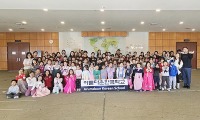





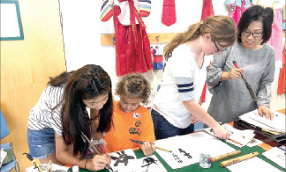
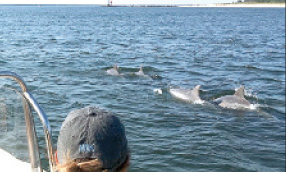
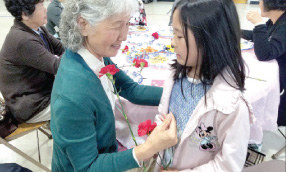
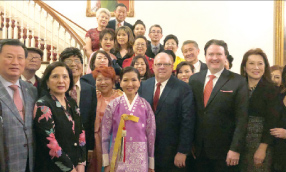
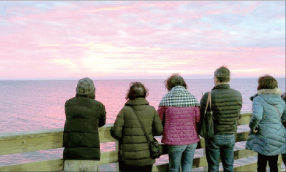
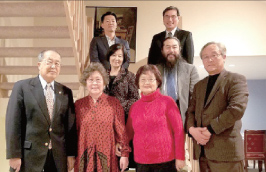
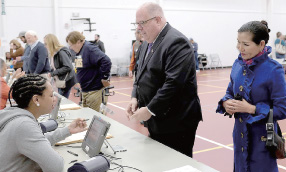








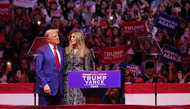




















.png)


댓글 안에 당신의 성숙함도 담아 주세요.
'오늘의 한마디'는 기사에 대하여 자신의 생각을 말하고 남의 생각을 들으며 서로 다양한 의견을 나누는 공간입니다. 그러나 간혹 불건전한 내용을 올리시는 분들이 계셔서 건전한 인터넷문화 정착을 위해 아래와 같은 운영원칙을 적용합니다.
자체 모니터링을 통해 아래에 해당하는 내용이 포함된 댓글이 발견되면 예고없이 삭제 조치를 하겠습니다.
불건전한 댓글을 올리거나, 이름에 비속어 및 상대방의 불쾌감을 주는 단어를 사용, 유명인 또는 특정 일반인을 사칭하는 경우 이용에 대한 차단 제재를 받을 수 있습니다. 차단될 경우, 일주일간 댓글을 달수 없게 됩니다.
명예훼손, 개인정보 유출, 욕설 등 법률에 위반되는 댓글은 관계 법령에 의거 민형사상 처벌을 받을 수 있으니 이용에 주의를 부탁드립니다.
Close
x